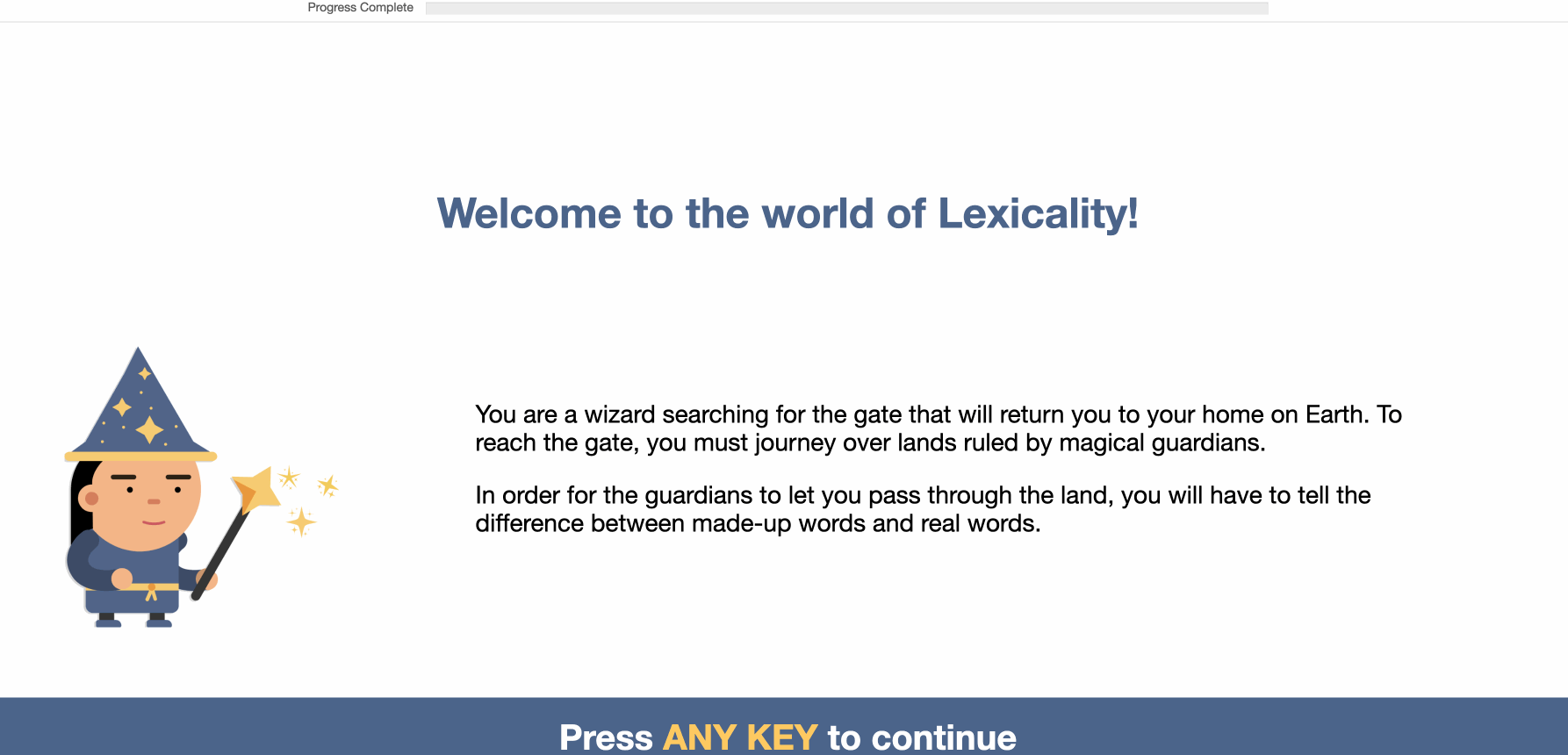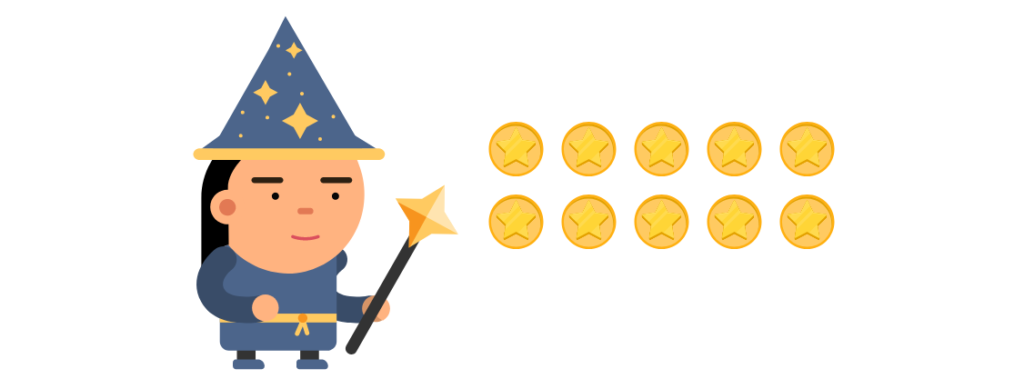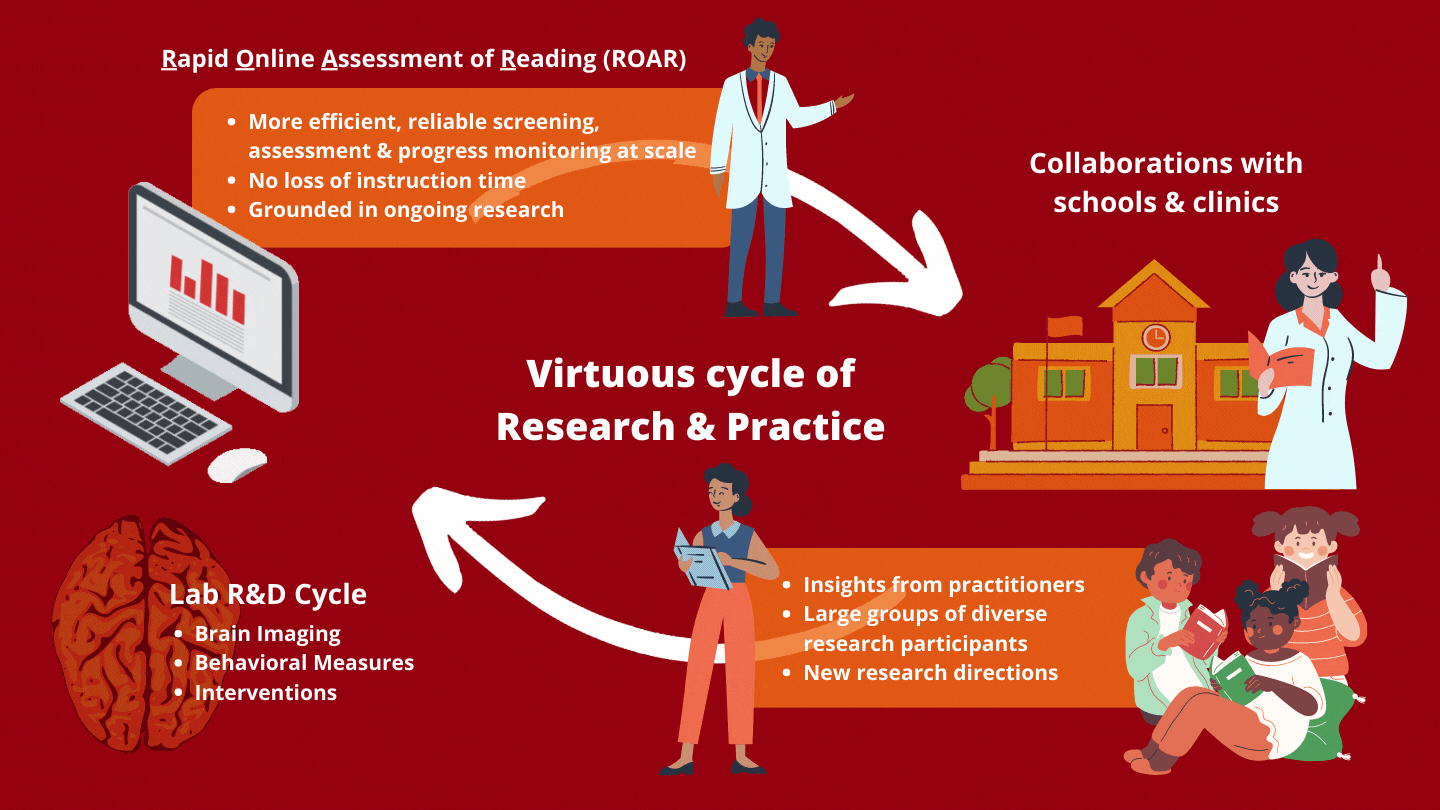The Rapid Online Assessment of Reading
An open-access assessment platform grounded in ongoing research by the Stanford Reading & Dyslexia Research Program
What is ROAR?
The Rapid Online Assessment of Reading is an ongoing research project and online platform for assessing foundational reading skills. ROAR consists of a suite of measures that have been validated K-12 in over 20,000 students across 16 states; each measure is delivered through the web browser and does not require a test administrator. ROAR rapidly provides precise indices of reading ability with greater precision than many standardized, individually-administered reading assessments. Powered by the Rapid Online Assessment Dashboard (ROAD), ROAR integrates with most rostering systems including Clever and ClassLink so can be deployed to a whole district with a click of a button and provides instructionally informative score reports to teachers in real time as students complete the assessments.
The Stanford Reading & Dyslexia Research Program aims to investigate the factors contributing to reading difficulties including dyslexia. By developing and rigorously validating automated assessment tools that enable large-scale data collection, and bridge research and practice, we can help researchers and educators understand and support the diversity of learners.
Scientific approach to validation
A Research-Based Tool
Administer anywhere online

Rapid. Automated. Online.
Active research & development

Active R&D
The ROAR Assessment Suite
ROAR is a tool for schools, clinics, and researchers — we offer a wide range of experiments that explore the domains of reading and language, visual processing, and executive function. The following ROAR are available for school and community organization partners to pilot:
Click on the boxes below to demo the assessments
ROAR assessments that have been validated at scale
New ROAR measures under active research
Coming soon: Rapid Online Assessments of Math (ROAM)
Rapid Online Assessments of Vision (ROAV)
How Does it Work?


ROAR-SWR measures word recognition by rapidly presenting real and made-up words and asking participants to press a key to indicate whether each word is real or made-up. The words span a wide difficulty range, providing an accurate index of ability for 1st through 12th grade in just 5-10 minutes.
Animated characters guide participants through a colorful voiceover narrative, ensuring participants understand the task through brief practice and feedback. In our validation studies, children as young as 2nd grade were able to complete ROAR-SWR without a proctor, and children in 1st grade could complete it with minimal assistance.
After completing the ROAR-SWR, participants will receive information on raw scores, as well as estimated standard scores, percentile scores, and risk designations.
Research-Practice Partnership: A Model for Collaboration

Frequently Asked Questions
ROAR is configurable for different applications. ROAR-Word can be collected as a quick screener in about five minutes. Adding ROAR-Sentence provides additional complimentary information for screening. ROAR-Phoneme provides diagnostic information on different aspects of phonological awareness that can be the target of instruction or intervention and takes 12-15 minutes. ROAR can be administered to any number of students at once—individually at home or in a clinic, in small groups, a classroom or whole school district —as long as each student has access to an internet-connected computer or tablet and headphones.
ROAR provides a comprehensive profile of foundational reading skills for students from Kindergarten through Grade 12. The score reports show you how many students in your organization need support on each specific skill. Furthermore, the reports provide individual data on each student in a table that can easily be grouped by skill, level of support needed, and more.
ROAR assessments examine foundational reading skills for students of all ages. Some of the assessments are computer adaptive, so they will give more challenging items to students who are ready for them. Some of the assessments provide different sets of items for students depending on their grade level, such as more challenging texts for older students. The graphics and storylines are omitted for older students. The assessments are generally structured similarly and the scores are comparable across grade levels.
Nothing! The ROAR is an open-access assessment; no payment or subscription is required.
The administration is completely automated – directions are read to students through their headphones, and students respond on the computer. Teachers or guardians may need to help students with logging in. Students may do the assessments in their classrooms as a group, at home, or with a specialist.
Please see our optional Quick Start guide that we provide for partners.
We take research participant data privacy seriously. All assessment data is stored securely and separately from identifiers wherever possible. If your child’s school is engaged in a ROAR partnership, assessment data may be shared back with the school as additional information to support teaching and learning.
We are excited to partner with you to try these research tools in the classroom!
We are happy to come to your school virtually or in-person to discuss the ROAR and how it can support your students and teachers. Please reach out to our Director of Research and Partnerships, Carrie Townley-Flores (ctflores@stanford.edu) to make arrangements.
This is standard practice, and we are happy to work through this process with you. Please note that Stanford’s lawyers will need to sign off on any legal documents and this process may take some time. We also require our partners to review our Letter of Agreement or Terms of Service.